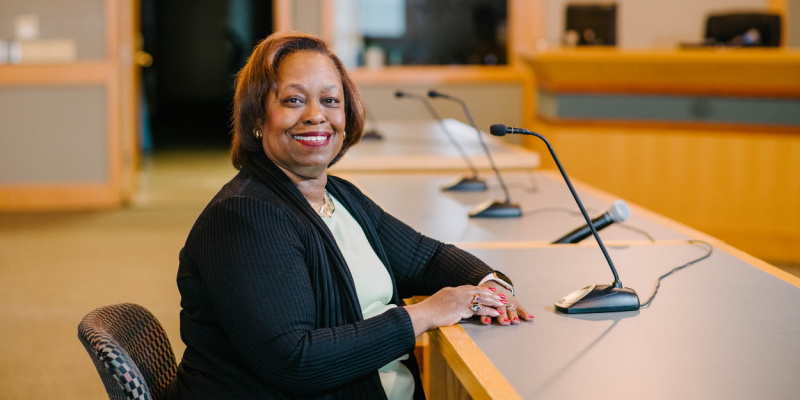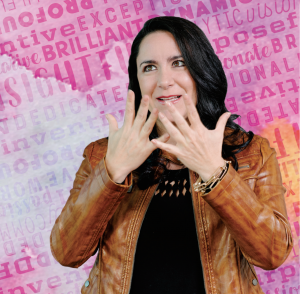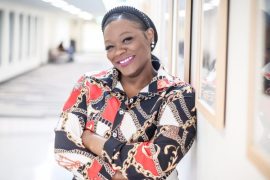By Shayna Mace | Photography by Hillary Schave
When Frances Huntley-Cooper came to Madison in August 1973 to attend grad school at UW-Madison, she expected her stint here to be short. At the time, the university had an exchange program with North Carolina A&T State University, where Huntley-Cooper had just finished her undergraduate degree in social work.
Initially, the suggestion by a college dean of attending UW-Madison threw her for a loop.
“They were encouraging us to come up to Wisconsin, and I was like, ‘Where the heck is Wisconsin? And how many Black folks live there?’” she laughs. “But, they did a hard sell, and I thought, ‘OK, I’ll come up there to get my degree and I’ll be gone.’ I came up in August 1973 and I went to summer school so I could get out early. I had my master’s degree by December 1974. I thought, ‘I’m leaving, I’m out of here.’ But then I never left.”
***
Huntley-Cooper spent her childhood with her twin sister in Elizabethtown, North Carolina. It was a small town where “everyone knew everybody’s business,” she jokes. Growing up, the schools in her town were still segregated, and she attended a Black elementary and middle school. (The 1954 Supreme Court decision Brown V. Board of Education of Topeka ruled that separating students by race was unconstitutional. However, many school districts defied the order or didn’t integrate immediately after the ruling.) In 1965, the high school across the street from her home was desegregated, and her grandmother informed Huntley-Cooper and her sister that they would attend the white school now.
“I said, ‘I don’t want to go, I want to go to the Black school.’ But she said, ‘No, you’re going across the street.’ So, I had four years at the predominantly white high school, because you know, we integrated into that school with a handful of other Black students in the community. I had a pretty good experience there, and I didn’t have any problems.”
Huntley-Cooper went on to attend North Carolina A&T State University, an HBCU (historically Black college or university). After graduate school at UW-Madison, she worked in the foster care system, then was offered a job at Dane County Human Services as a social worker.
“I figured I’ll get a little experience, then leave. And then I never did,” she laughs.
Huntley-Cooper worked for the Dane County Department of Human Services for 28 years in various departments, from delinquency to Child Protective Services. During her time there, she was asked to participate in a class-action, employment discrimination lawsuit against the county. She agreed to join because she had applied for a number of jobs for which she was qualified for. However, despite being a top candidate, the jobs were always awarded to someone else.
“African Americans weren’t getting appropriate treatment, and they told me my case would help make the class-action one stronger. I wasn’t looking for money — it was the principle of opportunity … I knew that if you were in a supervisory or management position, you had an opportunity to be at the table when you’re talking about policies. I wanted to be at the table when decisions were made that impact a larger population.”
This experience appears to be the spark that made Huntley-Cooper realize she was made to do even more.
In 1987, Dane County Board Supervisor Jack Jallings reached out to her husband, Alphonso Cooper, and asked if he wanted to run for an alder seat in Fitchburg. Because he was a union president, he declined the invitation — but told Jallings he should ask his wife to run.
“I had no interest in getting involved in politics — period. It’s my social work background — seeing things you don’t necessarily agree with. [But] if I’m going to say we need to make a change, I don’t expect someone else to do something. If I want to see something changed, I think I need to get out there and work with others … to make a difference.”
Huntley-Cooper ended up serving two terms as an alderperson, then went on to serve as Mayor of Fitchburg from 1991-1993, becoming the state’s first Black mayor. Wisconsin has since only had one other Black elected mayor — Milwaukee’s current mayor, Cavalier Johnson.
“I found out in politics that … you can make things happen. My philosophy [about making a change is], you’re already at ‘no’ right now. So if I want to make something happen, I’m not afraid to ask for it — I’m trying to get you to move from a ‘no’ to a ‘yes.’”
In 2003, Huntley-Cooper was tapped to work in Governor Jim Doyle’s administration as administrator for workers’ compensation and served during both of his terms. She was also a Democratic National Convention delegate for both of Barack Obama’s elections in 2008 and 2012.
In 2011, Huntley-Cooper says technically, she retired. But those who know her know that’s not really the case. She’s served on countless boards and advisory committees over the years — too many to list here. Currently she’s the capital campaign co-chair for the Center for Black Excellence and Culture (theblackcenter.org), a building that will house a performing arts center and act as a hub for Black business owners, entrepreneurs and the community at large. It will break ground in 2024 and open in 2025.
Featuring Huntley-Cooper in this issue has significance, because she was part of the first Women to Watch class in 2012. While she modestly admits awards are nice, they aren’t her motivator — making a difference and uplifting people of color in the community are.
“I’ve had great opportunities in my life. And I just have to be thankful for the people who’ve been supportive of me. I don’t want to let anybody down. So, I try to be my best at whatever I do.”




